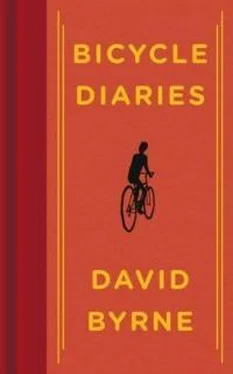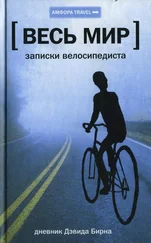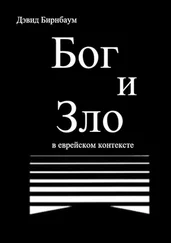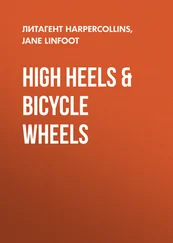It turns out that the original site was near a village where some of the local “mafia” have almost completed a largish club that they soon hope to open as an attraction in that area. Having preexisting ties with the local military (the military functions as the police outside of the city municipalities here), they requested that the military make it “difficult” for this music festival to go on, or so it is claimed. The mafia, they reason, see the festival as possible future competition for their club. This all came to a head over the last few days, it seems; the military issued a directive that the festival would be unsafe, citing danger of drowning, fires from the local forest, and possible drug use.
Alev told of approaching various ministers, some of whom are fundamentalist Muslims, for help. Can you imagine . . . ? First of all they most certainly don’t want to deal with a woman, and second they see these events, and Western pop music in general, as the devil’s work, so good luck girl.
The Alternatif Festival folks then took their cause to the national government. It may seem a big leap, from the community folks to the federal government, but apparently local corruption runs pretty deep, so one has to leapfrog it to escape it. Our Alt Festival pals decided to link the right to hold their music festival to the pending EU membership issue—something Turkey would dearly like to have. How does accommodating raves make one more eligible for EU membership?
Turkey, as I write this, is right in the middle of applying for EU membership, and it seems they just about qualify economically. But on the human-rights and cultural fronts there are huge gaping holes. Mostly the human-rights issue, which is a bit of a Turkish cliché, as everyone thinks of the film Midnight Express when they think of Turkey. (Imagine if your entire country and culture was represented by one film, one which portrays your country as being a brutal cesspool. I’d pray for another successful film about anything else. A nice love story maybe.) It seems the EU also requires member nations to have a full deck of cultural institutions—historical preservation societies, support for local and regional traditions, education, and institutions focused on different socioeconomic strata of the country.
This is where we come in. Youth programs are part of the EU’s cultural requirement. The other music festivals here focus on jazz, classical, and “ethnic” (i.e., world) music and are presented at prestigious venues, lavish concert halls, and the like, as are jazz festivals around the globe. Obviously these jazz festivals play to a so-called sophisticated portion of the Turkish public, with occasional demographic overlaps that include some of the hoi polloi. (I often personify that overlap at those jazz festivals.) But the Alt Festival folks hope to assert that the youth are not being served by these officially sanctioned festivals and that therefore the EU commission needs to see festivals like the Alt happen in order to be certain that all levels of the Turkish public are being catered to. It’s a kind of shaky argument, it seems to me, but go for it.
There is a limited audience in this part of the world for the fringe, albeit hip, side of global pop culture, of which the other acts like Jarvis Cocker, Sneaker Pimps, and I are representative. How important it is culturally for our limited slice of the global culture pie to be presented everywhere and be supported in part by the state is debatable. Ditto, I would argue, for orchestras, jazz, and contemporary art, which have all gotten support for years. Jazz (not to mention classical music) for decades was exported by the United States and tours were funded by the U.S. State Department and even by the CIA as being representative of cool U.S. culture, which went a long way toward making that music acceptable and suitable for concert halls around the world. But that is another rant.
Alev optimistically claims that within a few years I will be able to do a circuit that includes Beirut, Cairo, Sofia, Ankara, and Tel Aviv, which sounds good to me. I’ve done concerts in two of those cities previously, and it would be nice to someday connect all the dots. But do these countries really need Western art-pop music? A cosmopolitan demographic certainly likes it, but increasingly there are homegrown acts that are just as good as anything foreign. Though, for many countries, a foreign act will usually command more respect and interest than anything homegrown—sad but true.
At present the festival is still on, but the latest word is that it will be moved to another site—possibly without the tent, but with the full stage and the other bits. Yikes. It could get a bit wobbly out there, if they’ve moved the stage but haven’t moved all the toilets, the water trucks, and the food concessions.
I told the promoters I intend to visit the Asian side today on my bike. It’s not as touristy, but I’ve seen the tourist stuff—the Hagia Sofia, the Blue Mosque, and the vast underground cistern that the Romans installed—on previous visits. I bike down to the water and catch a ferry, and then I pedal around the promenade that stretches along the coast on the opposite side of the Bosphorus. The ferries leave every fifteen minutes or so and I catch one that goes around the outside of Istanbul harbor and drops me near a large university on the Asian side. There’s a nice green pedestrian strip along the water with scattered outdoor cafés, so it will be a pleasant ride back to the other Asian ferry terminal—the one directly across the Bosphorus from where I left.
I ride by the first train station built in the East. Trains head from there to Baghdad and points east, and near here is where the line begins, at the Bosphorus. Couples are out for a stroll, eating ice cream.
On returning I hear that the festival was denied permission at the second site, which is not a huge surprise. Their claims that a pop music festival would do wonders for Turkey’s cultural and human-rights record didn’t seem to fly.
The Show Must Go On
I spend the rest of the day wandering around town on my bike and I buy some wonderful reverse bas-reliefs of Atatürk and some cool old prints of Arabic maps and medical engravings of dissected brains. I meet Daniel, Alev’s Kazakh assistant, in the lobby, where I assume some journalists will join us. Instead he leads me out to the hotel garden where some tables and chairs are set up and it seems there is going to be (surprise!) a whole press conference with TVs, etc. Ah well, what can you do?
Alev then comes up to greet me and in a low voice informs me that now the festival is off entirely. I am slightly, but only slightly, shocked. Alev has arranged the press conference to announce the canceling of the festival. I sit beside her and say to the press and TV that I am saddened by what has happened as I have been very much looking forward to playing here again.
Meanwhile, all the journalists in front of me immediately get on their cell phones—it’s an odd sensation to talk to an audience when they are all making calls. Alev is on and off the phone herself, and she suddenly announces that maybe there is a possibility of yet another site. This one will be smaller, and closer to town (good news, I think, that last bit, given the horrendous traffic here).
We, my band and crew, all go out to dinner, but I am first taken to a TV station, where I had agreed to put in an appearance. When we finally get there it turns out to be a sports show, and World Cup fever is rampant. Somehow they’ve managed to shoehorn me into the program due to the general World Cup excitement. Maybe some of the euphoria will rub off?
The next morning it seems the festival is really back on, at the new, third site. My crew head out in the morning. Although we had prepared ourselves to leave for an early-morning sound check and rehearsal, it gets pushed back twice—to two PM. Kind of a worry, that, as there are two new string players in the group and we’ve all been off the road for a couple of months and could use the run-throughs . . . but there’s nothing to be done.
Читать дальше









